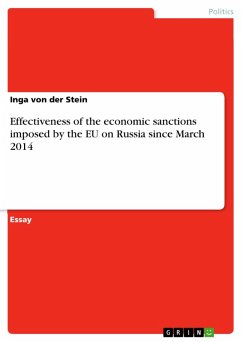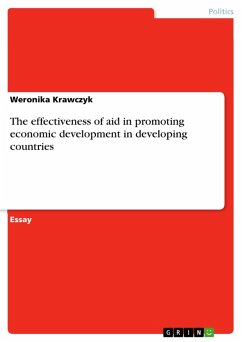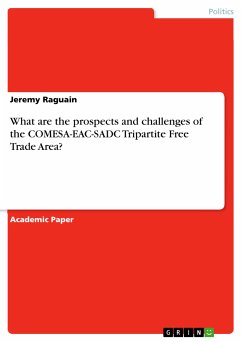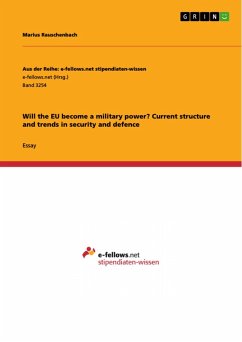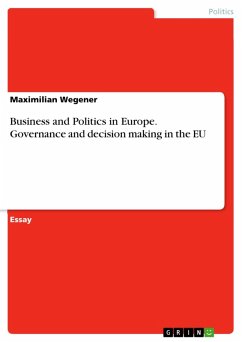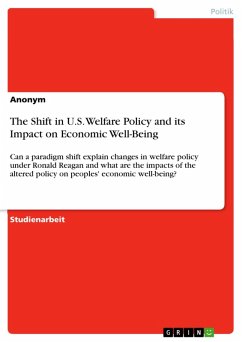Essay from the year 2017 in the subject Politics - Topic: Peace and Conflict, Security, , course: Faculty of World Economy and International Affairs, language: English, abstract: The debate about the effectiveness of sanctions is not new, but was started at a high political level by the United States' (US) President Wilson in 1919, when he discussed the utility of sanctions as a foreign policy (FP) instrument which he viewed as an alternative to war. Almost a century later, the debate about the effectiveness of sanctions still lives on. While the US has been a frequent sender of sanctions since WWI, the European Union (EU) has emerged as a new sender of sanctions on the international stage since the 1990s. For this paper, the sanctions imposed by the EU on the Russian Federation (Russia) starting in March 2014 were selected as a case study to investigate the effectiveness of sanctions. This paper applies the framework developed by Hufbauer to analyse the effectiveness of sanctions, which points out that their effectiveness depends on the extent to which the policy objectives by the sender were achieved and the contribution to success that was made by the sanctions. To explain the influence of sanctions on Russia, special emphasis is laid on the political character of the target's country's government, which is one of the political variables outlined by Hufbauer.
Dieser Download kann aus rechtlichen Gründen nur mit Rechnungsadresse in A, B, BG, CY, CZ, D, DK, EW, E, FIN, F, GR, HR, H, IRL, I, LT, L, LR, M, NL, PL, P, R, S, SLO, SK ausgeliefert werden.

